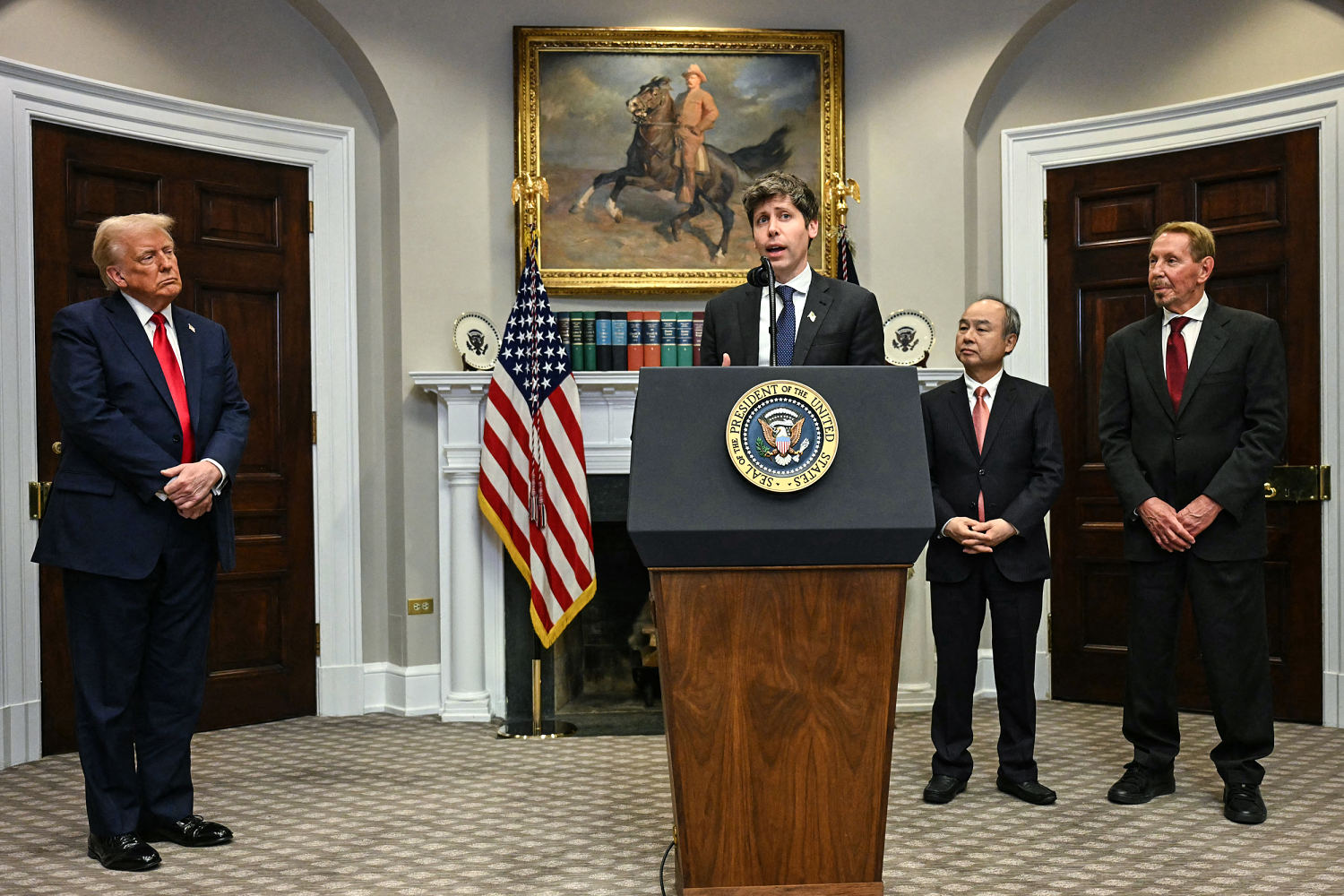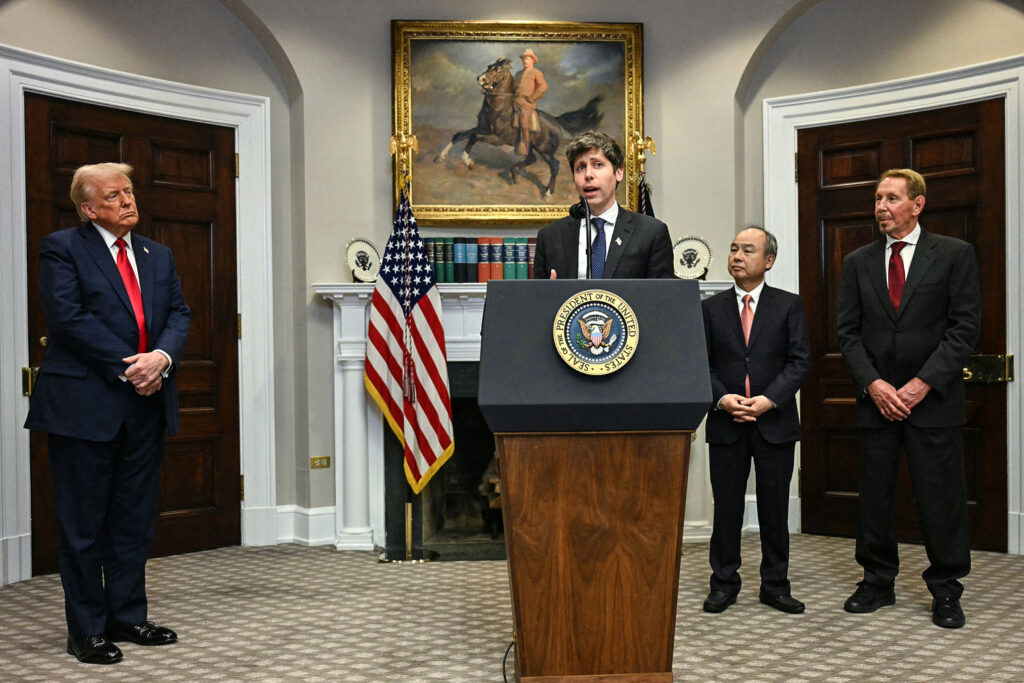
OpenAI is asking the U.S. government to make it easier for AI companies to learn from copyrighted material, citing a need to “strengthen America’s lead” globally in advancing the technology.
The proposal is part of a wider plan that the tech company behind ChatGPT submitted to the U.S. government on Thursday as part of President Donald Trump’s coming “AI Action Plan.” The administration solicited input from interested parties across the private sector, government and academia, framing the future policy as a shift that would “prevent unnecessarily burdensome requirements from hindering private sector innovation.”
In its proposal, OpenAI urged the federal government to enact a series of “freedom-focused” policy ideas, including an approach that would no longer compel American AI developers to “comply with overly burdensome state laws.”
Copyright in particular is an issue that has plagued AI developers, as many continue to train their models on human work without informing the original creators, obtaining consent or providing compensation.
OpenAI has been sued by several news outlets including the Center for Investigative Reporting, The New York Times, the Chicago Tribune and the New York Daily News over claims of copyright infringement. Several authors and visual artists have also taken legal action against the company over unauthorized use of their copyrighted content.
Still, OpenAI said it believes its strategy — the encouragement of “fair use” policies and fewer intellectual property restrictions — could “[protect] the rights and interests of content creators while also protecting America’s AI leadership and national security.” It did not elaborate on the former.
Many leaders in the AI industry and members of the Trump administration have framed America’s dominance in AI advancements as a matter of national security, comparing it to a high-stakes arms race.
“The federal government can both secure Americans’ freedom to learn from AI, and avoid forfeiting our AI lead to the PRC by preserving American AI models’ ability to learn from copyrighted material,” OpenAI’s proposal states, using an abbreviation for China’s formal name, the People’s Republic of China.
Shortly after he took office, Trump issued an executive order that revoked former President Joe Biden’s policies on AI, stating the United States’ previous directives acted “as barriers to American AI innovation.”
Biden’s “Safe, Secure, and Trustworthy Development and Use of Artificial Intelligence” executive order, issued in October 2023, stated that “irresponsible use [of AI] could exacerbate societal harms,” including threats to national security.
His first week in office, Trump also announced Stargate, a massive AI infrastructure investment venture unveiled at the White House in partnership with OpenAI, Oracle and SoftBank. Executives of those companies pledged to invest an initial $100 billion and up to $500 billion over the next four years in the project, which will be set up as a separate company.
OpenAI called for more investment into the technology in its proposal, writing, “Sustaining America’s lead on AI means building the necessary infrastructure to compete with the PRC and its commandeered resources.”
This investment in AI infrastructure, it wrote, would create jobs, boost local economies, modernize the country’s energy grid and prepare “an AI-ready workforce.”
Executives at OpenAI told reporters last month that as part of the ambitious project, the company is considering constructing new data center campuses in 16 states, CNBC reported.
OpenAI also encouraged the government to focus on exporting American “democratic AI” to promote the adoption of U.S. technology abroad.
OpenAI says this would start with adopting AI tools within the U.S. government as well. (The company previously launched ChatGPT Gov in January, a version of ChatGPT built specifically for government use.)
The proposal directly points to DeepSeek R1 — the AI model recently released by a small Chinese lab that temporarily took ChatGPT’s No. 1 spot in the Apple App Store, became the talk of Silicon Valley and caused tech stocks to crash — as a threat to the United States’ global leadership on AI.
“While America maintains a lead on AI today, DeepSeek shows that our lead is not wide and is narrowing,” the company said.
